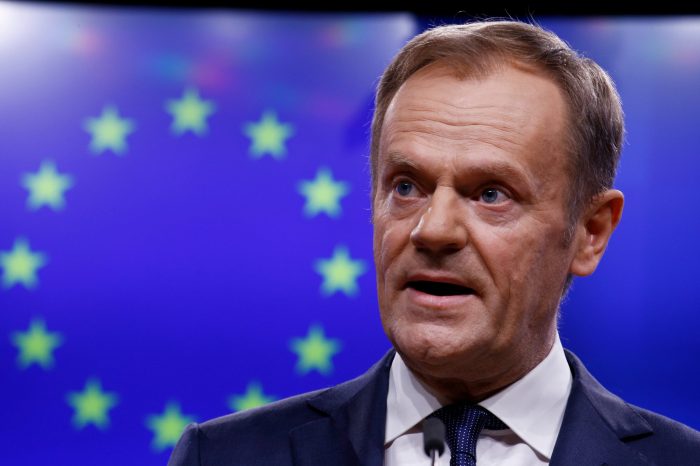Winning the student vote
The announcement that university vice-chancellors are launching a campaign to encourage students to vote to stay in the EU doesn’t come as any great surprise. Jean-Claude Juncker, the President of the European Commission recently admitted to the Belgian newspaper Le Soir that the EU had become “an élitist project.” Academics have always been far keener on the EU than the average man in the street and some of them, of course, are very much part of that élite. Others are only concerned about their particular field of study. They have welcomed the grants provided by the EU but are highly unlikely to have any idea about how it operates and possibly may never have understood that the European project is about creating a federal superstate.
However, the decision of the university vice-chancellors to throw their weight behind remaining in the EU is a wake-up call for supporters of withdrawal. Last Monday’s statement by Dame Julia Goodfellow, president of the Universities UK group, when dissected, does not contain any unanswerable arguments for staying within the EU but there must be a sensible exit strategy on offer if it is to be countered.
She said, “The case for staying in Europe is about ensuring the future prosperity of the UK. It’s about maximising the chances of new discoveries that enhance the society in which we live, it’s about the UK’s standing in the world, it’s about British jobs, and it’s about opportunities for British people now and in the future.” Well, if she still believes in the myth that three million jobs depend on our EU membership, she is distinctly behind the times. While relying on WTO rules to preserve our trade the day we leave the EU would indeed damage the UK’s future prosperity and threaten jobs, the EEA/EFTA route (or a “Shadow EEA” agreement if this option is taken away from us by the EU’s “associate member” plan) will preserve UK jobs and will be, at worst, economically neutral in the short term and beneficial in the long term. Care is needed here, however, as the amount of “red tape” we could cut after leaving the EU is far less than some supporters of independence might claim, given that some regulation placed on our statute books by the EU originates with international bodies of which we would still be a member. Then what about the UK’s standing in the world? This is one of the daftest arguments the Europhiles have yet come up with. Why on earth should anyone respect a nation which can be subject to fines and legal action at the whim of unelected foreign bureaucrats? At the end of the day, the EU is a club of nations that do not have enough self-confidence to run their own affairs as sovereign nation states. It is hardly going to diminish our standing in the world to stand proudly on our own two feet again. After all, we speak the world’s most spoken language as our mother tongue, we can regain our own seat on organisations such as the World Trade Organisation and we are still either the 5th or 6th largest economy in the world, depending on whose figures you read. An independent UK would hardly be an insignificant cypher on the world map.
She added, “By supporting collaboration and breaking down international barriers, the EU helps universities to carry out cutting-edge research and make discoveries that improve people’s lives.” And why should not an independent UK encourage its universities to continue to be in the cutting edge of research and co-operate with their foreign counterparts in the EU and beyond? The arguments do not stack up.
So why is the academic world so keen on the EU when the main thrust of its arguments can easily be countered? Most likely because they haven’t actually heard the counter-arguments but perhaps more imprtantly, some of the rhetoric used in the debate thus far has antagonised them. Immigration is a real concern to some, but strong language replete with anti-immigrant sentiment is not going to go down well in any academic institution. Log on to any university website and scroll down a list of professors and lecturers in most departments and you will find a very international group of people. Of course, our universities also attract many students from overseas, including from the EU and plenty of UK students are taking their degrees in universities on the Continent – in some cases, for no other reason than because the fees are less! The withdrawalist movement therefore needs to emphasise that there would be no reason for an independent UK to pull out of the EU’s Erasmus student mobility programme – after all, Switzerland, the EEA countries and Turkey are also members. It’s all about the tone of the argument, in other words. Withdrawal must not sound like pulling up the drawbridge. To neutralise the pro-EU campaign in our universities, we must recognise that our objective is to win over a very cosmopolitan group of people who do not share our visceral loathing of the European project and do not see it for the great evil that is unquestionably is. Such is our hatred of the EU that we would love to press some button that would instantaneously sever our links with it and leave us in a purely free trade relationship along the lines between the EU and, say South Korea or Mexico. This, whether we like it or not, is cloud cuckoo land. Disentangling over 40 years of integration isn’t going to happen overnight and even if we were able to win 80-90% of our fellow countrymen round to unconditional support for independence, a slow, gradual divorce is the only way of extricating ourselves while maintaining our prosperity. There will, of necessity, be in the short term (and in some cases, the medium term too) a need to keep much EU legislation on our statute books which we would ideally love to confine to the dustbin as soon as possible.
And thankfully, the sheer practicalities which must restrain the more gung-ho supporters of withdrawal should also lead them round to supporting the only exit strategy most likely to command widespread popular support. After all, we have one objective and one only – to win the referendum and get out of the EU. Opinion polls show us as being the underdogs at the moment and it is clear we cannot win round “soft” supporters of membership or the undecided with any argument that smacks of isolationism or anything that might remotely be conceived as racism. Several university debating societies are already inviting speakers to take part in debates on EU withdrawal and we should gladly rise to the challenge. Sociologists claim that many under-30 are far more individualistic and sceptical about the welfare state and even the NHS than their parents’ generation. They are cynical about big government and grandiose schemes by politicians. Such people ought to be natural opponents of a behemoth such as the EU, but not many of them currently are. We therefore need to hone our message; to get back to fundamentals and say far more about the essential anti-democratic and élitist nature of the European project while at the same time emphasising that we are keen to engage with the whole world, including the EU. If we can begin to win debates on university campuses, the tactics we use may subsequently prove helpful in winning over the population at large.








